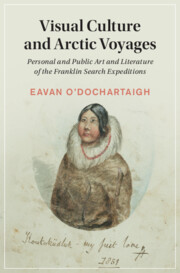Abbreviations and Nomenclature
- BL
British Library, London
- LAC
Library and Archives Canada, Ottawa
- NLA
National Library of Australia, Canberra
- NLI
National Library of Ireland, Dublin
- NMM
National Maritime Museum, Greenwich, London
- NRO
Norfolk Record Office, Norwich
- RGS
Royal Geographical Society, London
- RL
Rubenstein Library, North Carolina
- SPRI
Scott Polar Research Institute, University of Cambridge
- TNA
The National Archives, London
- TPL
Toronto Public Library
The place names of the Arctic Regions that appear in historical records are generally different from those that are used today. In order to retain historical accuracy, when quoting from primary sources, I have retained peculiarities of spelling and used the historical place names given to the inlets, islands, and settlements of the Arctic by European explorers. Where possible, I have given the Indigenous or official name to settlements in parentheses. The word Esquimaux was commonly used in the nineteenth century to describe the Indigenous people of Greenland, Arctic Canada, and coastal Alaska. Tuski was used to refer to the Chukchi on the west side of the Bering Strait. Throughout this book, barring quotations, the Indigenous peoples of the Arctic are referred to as Chukchi (north-eastern Russia), Yup’ik and Deg Hit’an (western Alaska), Iñupiat (northern and western Alaska), Gwich’in (north-eastern Alaska and Gwich’in Settlement Area, Canada), Inuvialuit (Inuvialuit Settlement Region, Canada), Inughuit (north-western Greenland), and Inuit (Nunavut, Canada and Greenland). The term Inuit is also sometimes used to refer to Iñupiat and Inuvialuit, in accordance with the charter of the Inuit Circumpolar Council. As the term Inuit means ‘the people’, it is never prefaced with ‘the’. In keeping with the linguistic recommendation from Government of Canada’s Translation Bureau, Inuk is used as the singular noun, and Inuit is the plural noun and the adjective.



